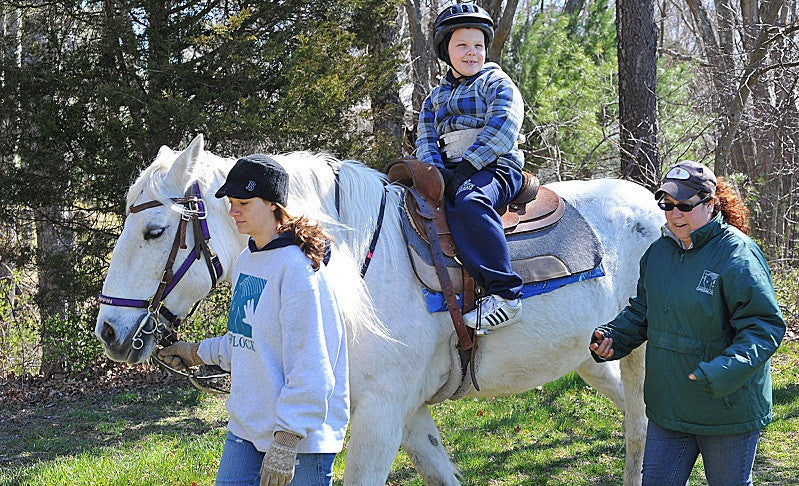
Therapeutic Horseback Riding for Kids with autism
Emotional Benefits
Children learn to bond with their horses and care for them, giving each child the ability to create a relationship with one of these magnificent creatures. In some cases, nonverbal kids have started to talk to their horses, while kids with sensitivities to touching and being touched have shown physical affection towards horses in the form of hugs and kisses. Children learn to care for the horses; creating an emotional connection that many parents don't even realize is possible. Over time, feelings of empathy are fostered, which is something that many experts previously thought that kids with autism were not capable of learning.
Cognitive Benefits
Beyond the emotional bonds, horseback riding offers cognitive benefits. Children learn to groom their horses, creating the opportunity for growth when it comes to following instructions, recognizing colors and shapes, and learning new vocabulary words. While these lessons can be tried in a classroom setting, this unique setting is less intimidating, allowing for improved results. There are even some activities that can be done while on horseback, like throwing colored balls into baskets during a ride. Integrating classroom-style activities combined with the calming effect of the animals can have a profound impact on an autistic child's ability to learn new things.
Sensory Benefits
While kids with autism do not initially enjoy change in their routines, any hand flapping or meltdowns that start at the beginning of the first therapy session quickly fade away as they are introduced to their horses. Horseback riding engages the senses in a way that is not overwhelming, which is critical for autistic kids. The touch of the horse's coat, the sounds of the horse in the stall, and the feel of riding, all create a calming sensory retreat that allows kids to be more open to learning and communicating in different ways.
Impact in the Classroom
A recent study at William and Mary College showed that the benefits of this fun activity are being seen in classrooms, with teachers noticing better sensory reactions and increased cognitive skills. Improved social interaction and interest in learning were also noted in kids with autism who use horseback riding as a therapeutic activity.
While there is no known cure for autism, activities like therapeutic horseback riding are providing remarkable results for kids of all ability levels, whether they have autism or Asperger disorder. With increased emotional response, cognitive ability, and sensory integration, horses provide an outlet for learning and expression that cannot be taught in a traditional classroom. Kids who learn how to care for and ride a horse learn new communication and coping skills while enjoying all of the fun that comes with being around these great animals.

Comments
Leave a comment